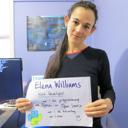Graph Databases will change your (freakin') life
| Start time | 14:05 |
|---|---|
| End time | 14:30 |
| Countdown link | Open timer |
This talk will be an introduction and overview of these Graph databases that are so hot right now, and how you can drive them using python.
Relational and NoSQL DBs have ruled the roost for a couple of decades now, but in real life there's more to data than just tables or key-pairs. Graph DBMS technology has been coming along for the last decade-or-so and is now quite mature. Everyone wants one, just ask a Fortune 500 company.
I mean: why have a table when you can have a knowledge graph? Why not be able to whip up a recommendations engine (or indeed a fraud detector) in a few minutes?
Graph databases store data in Graphs -- that is NOT chart-visualisation nor syntax standard on API layers (NOT a GraphQL talk), but per the paper written by the mathematician Euler in 1736: those data structures which are "nodes" connected by "relationships".
This talk will be a primer on what this all means, how they work and when they're a good idea to use. There will also be a demonstration and discussion about how to kick off with graph DBs driven by python, specifically for people who are familiar with conventional databases, but have never used Graph databases before, but might be curious.
See a link to all the code examples from the talk here: https://github.com/elena/graph-fun <3 :sparkles:

Elena cares deeply about Python and the community. Elena has been using python since 2005ish and has been coding the web for money for a while longer than that. She moonlights in computer science at ANU, she's proudly part of the CPUG organising team, she's a member of the Python Software Foundation (which we all should be! https://www.python.org/psf/membership/ ) and an elected member of the Django Software Foundation. Through happy coincidences she is both a founding PyLady and a founding DjangoGirl and has tried to do her best in both these organisations. She's spent more time with tabulated data than a sane person should; she watched the Ed Finkler talk with the same title as this talk a couple of years ago and it really did. She is a Neo4j certified professional.